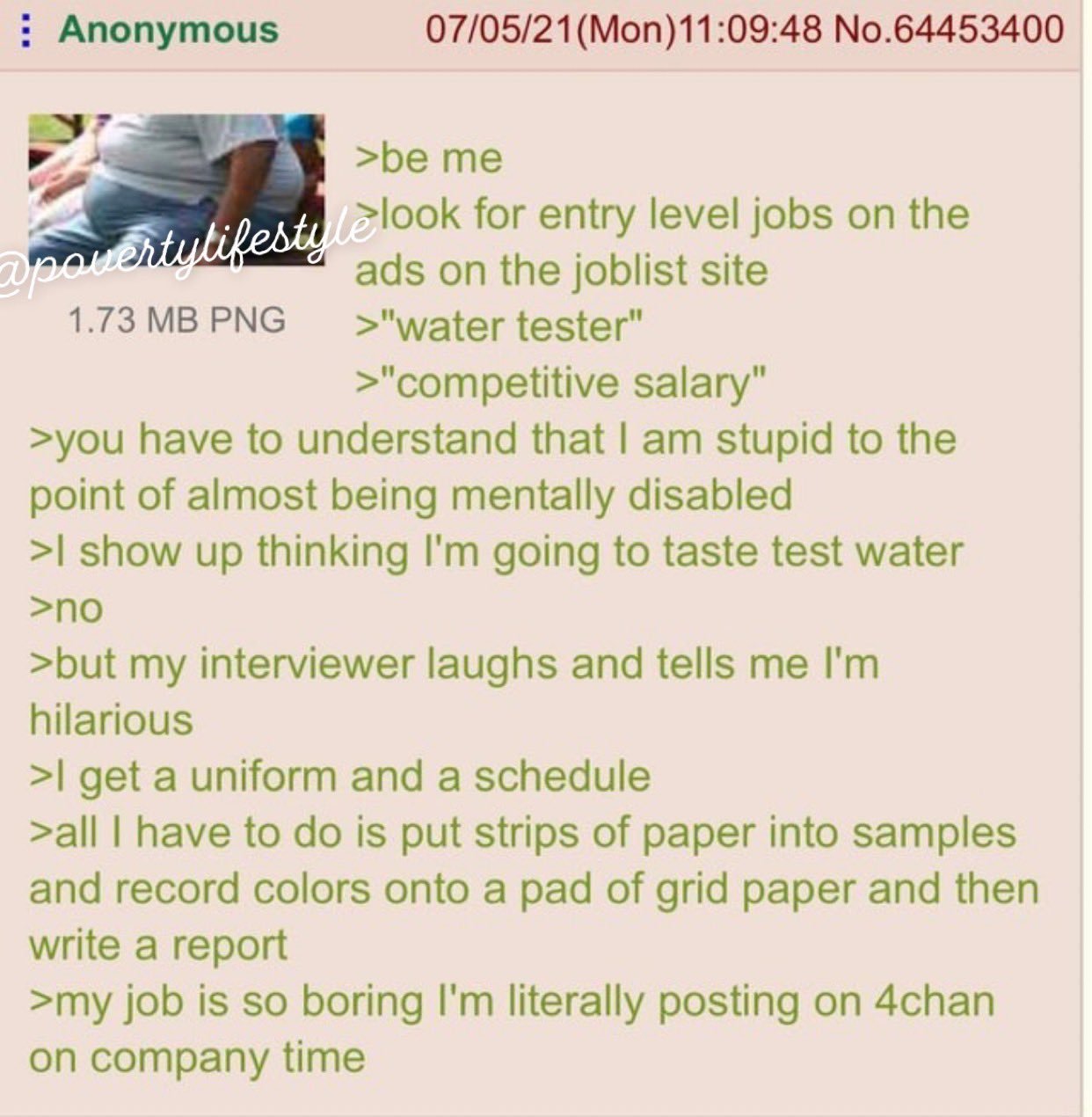this post was submitted on 13 Aug 2024
707 points (98.9% liked)
Greentext
4483 readers
1081 users here now
This is a place to share greentexts and witness the confounding life of Anon. If you're new to the Greentext community, think of it as a sort of zoo with Anon as the main attraction.
Be warned:
- Anon is often crazy.
- Anon is often depressed.
- Anon frequently shares thoughts that are immature, offensive, or incomprehensible.
If you find yourself getting angry (or god forbid, agreeing) with something Anon has said, you might be doing it wrong.
founded 1 year ago
MODERATORS
you are viewing a single comment's thread
view the rest of the comments
view the rest of the comments

In which case, the job becomes transferring the bottled samples into sample tubes in trays so that the machine can process them, and usually adding a barcode to each sample tube. The sample tubes need to be kept immaculate as well - some of the things that we test water for, like pesticides, are only present in miniscule concentrations. Might not actually save a great deal of time, and you need to buy and maintain a very expensive automated sampler.
When I used to work in the water industry, we were usually able to get PhD-qualified research chemists to do all this mind-numbing laboratory work. There's a bit of a surplus of qualified chemists compared to the number of chemist jobs available, so you got absurdly over-qualified people applying for these roles.
I specifically did not specialize in analytical chemistry because of this. It's relatively easy to get a job, but it's mind numbingly boring to do the same tests over and over and over.
I did physical chemistry. No jobs but at least no one knows what the fuck you can do.
(Incidentally I managed to get a job with energetic materials where my education is occasionally relevant)